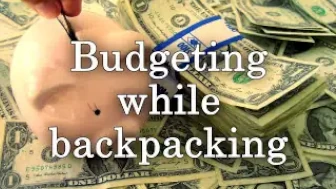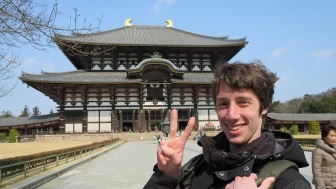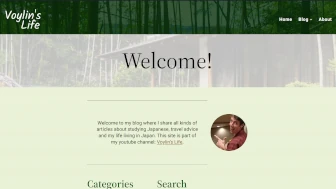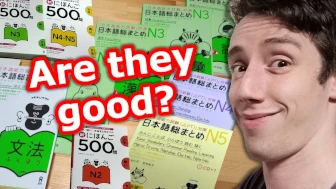Traveling is expensive
Yes, traveling is more expensive than sitting at home doing nothing. But it doesn’t have to cost an arm and a leg. There are so many possibilities nowadays to travel cheaply and still have an awesome experience. Of course, it can’t be free, but you can, however, buy yourself a tent, decent backpack and some basic tools you will need to go camping by example, then your main cost will only be food if you walk everywhere and avoid transportation.
In general, the biggest costs are:
- Transportation;
- Hotel;
- Food.
My tips:
1. Daily budget
Research to which country you are going to, or want to go to. This can give you a general idea for those 3 biggest costs mentioned earlier. A general way of doing this is by following this formula:
The average price for accommodation a night + 3 times the price for an average meal + 10-20 euro transportation/activities.
Change this to your liking and you will get yourself a daily budget, multiply that by the day’s you will be staying there, add a plane ticket if necessary and you got yourself your budget for the trip as well. I would, however, recommend that you stay flexible with this budget as it’s just a guideline. It can be more or less, just make sure that your budget isn’t holding you too much back from having a fun time or from staying healthy.
2. Be aware of scams
Scams come in all kinds and flavors. Fall in one and you lose more money then you should nor want. Some popular scams are extra fee’s at hotels which suddenly get charged, airport taxi’s which aren’t official and which charge almost 5 times as much as the real ones, …. and so on and so on.
For this, you really should look up all the possible scams, so you can stay aware of them. But don’t let this ruin your trip, chances that you will fall into a scam by knowing them is very slim, to say the least.
3. Track your spending’s
This should be a part of Daily budgeting, but I have to mention this. You have set yourself a daily budget but it’s also needed to actually track your spending’s. As I said, it’s okay to go over budget or even below, but don’t let it go completely out of hand if you wouldn’t have enough money left over for the other day’s.
4. Transport
This is the easiest one to save money on. Just rent a bike or go everywhere on foot. I mainly choose the latter one as my legs are in good condition and I like walking, it’s also the best way to explore a country but an even better way to not spend a ton of money. It’s easy to take transportation everywhere but except when you are changing cities, you have to wonder to yourself if it is really necessary for you to take that transport.
However, this changes when you are also on a time constraint. When I travel, I always have at least 2 weeks, and I don’t want to see a thousand things so spending the time walking everywhere doesn’t really bother me as I have all the time in the world whilst traveling.
5. Accommodation
There are three types of accommodation that I recommend, but it also changes to which country you are going. I have stayed in places where hotels were the cheapest option available, but in general, these 3 are the way to go for everybody who wants to save as much money as possible
Couch surfing = It’s free and you get to know locals and the culture in an enjoyable way (most of the time).
Camping = When wild-camping, it’s totally free, you won’t, however, have the luxury of a hotel room or even a hostel bed, but it’s something I like doing whilst traveling to save a decent amount of money. Take in mind, many countries don’t allow wild-camping, or they only allow it at specific locations. In Belgium by example, you have to look up “Bivak” places.
And finally, Hostels! They are cheap, a great way to meet new people and you have all comforts that you want (most of the time).
6. Places to visit
Many places have many free spots to visit, an example I like to use is Kyoto. Kyoto is a beautiful city, but all the commercials always show temples which you have to pay for or activities which aren’t cheap. Well, just get yourself some decent hiking boots, look at a map and you will soon see that there are a ton of things to see which don’t require an entrance fee at all.
A great way to find free places is by contacting locals or looking up information online. I’m more the type of person that goes to a place without looking up too much information as I like to get surprised. :p
7. Food
Street food is the way to go for going on a budget, this and convenience stores or supermarkets. If your hostel provides a kitchen or even just a microwave, you can easily get a meal for just a couple of coins. Here in Japan, most supermarkets even have a microwave available to just heat up your food, walk to the nearest park, sit on a bench and enjoy your food with a nice view and possibly a beautiful sunset. ^^
8. Tons of free activities
Go running, walking, just travel with your bike instead. You don’t need to spend money to ride an elephant, attraction park, aquarium, boat tour, … But don’t let this stop you from doing these things. You are traveling, if you want to do something, you should do it. I mean, what are the chances you will go traveling there again? If there’s something you shouldn’t have when returning from a trip, then that would be regrets.
9. Souvenirs
As a backpacker, I wouldn’t recommend you doing this as space is limited and souvenirs are also objects which you keep for some years to finally throw it out, wondering why you ever got it in the first place and regret having spent the money for it and all the countless hours of carrying it in your backpack.
But if you are the kind of person who likes having different souvenirs from the places you’ve been to, get small souvenirs or something you will actually use.
10. Exchanging money
Exchange your money at the wrong place and you will be sure that you are paying a premium fee. My advice is always to just go to your bank before traveling, asking them to open up your card to be able to use it in the country you are visiting, and getting money in the country by using the ATM’s. Of what I have found out so far, go to convenience stores like Family Mart or Seven-Eleven as their fees are low and their exchange rates are decent. When using ATM’s from a bank, the fee which they charge may be above 5 euro’s at certain times and their exchange rate can be quite bad, to say the least. I once exchanged money when the official market price for 1 euro was 121 JPY and I only got an exchange rate of 106 from that bank’s ATM.
however this can change at certain countries so please check this information according to the country you are going to, it’s an important way to save money as well, as receiving more money for your money is always a good idea.
If you have your own tips you want to share, please go to the video and write a comment. 😉










